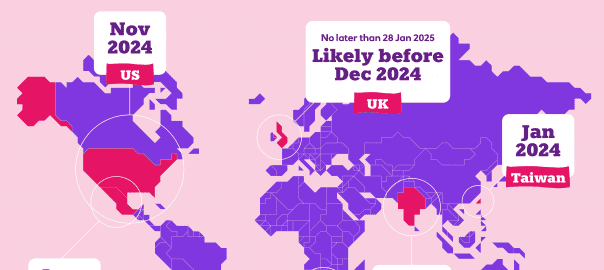Dec. 02, 2025 /Mpelembe Media/ — The Sumsub Fraud Report 2025-2026 focuses on the “Sophistication Shift,” which describes the fundamental change in identity fraud from high-volume, basic attempts to fewer, more targeted, and financially damaging AI-enabled operations. This shift is driven primarily by the industrialisation of deception via generative AI, leading to an explosion in deepfakes and highly realistic synthetic identities across all major digital ecosystems. The analysis provides comprehensive regional breakdowns for Europe, Asia-Pacific, Latin America, Africa, and North America, demonstrating that even in markets where overall fraud rates are stabilising, the remaining attacks are significantly more complex and harder to detect. Continue reading
Tag Archives: Deception
Perfect storm of tech bros, foreign interference and disinformation is an urgent threat to press freedom
Tom Felle, University of Galway
Media freedom has long been essential to healthy democracy. It is the oxygen that fuels informed debate, exposes corruption and holds power to account. But around the world, that freedom is under sustained attack.
Parents lie to children all the time – but they should think twice about it
Rebecca Brown, University of Oxford
Parents frequently lie to their children. “No, you can’t have any chocolate – it’s all gone,” when there’s a jumbo bar of Dairy Milk in the cupboard. “No, you can’t have my phone to watch YouTube – the battery’s flat,” when it’s at a solid 65%.
Four tips for a healthy news diet in 2024, from an expert in media psychology
Sharon Coen, University of Salford
The start of the new year brings inevitable pressure to start fresh, with new hobbies, exercise regimes and healthy diets. But there is one diet you may not have thought of improving this year: your media and news consumption.
2024: The year of democratic elections
Jan. 2, 2024 /Politics/ — 2024 is shaping up to be a bumper year for elections! Here are some noteworthy examples beyond the UK and USA: Continue reading
Donald Trump’s truth: why liars might sometimes be considered honest – new research
Stephan Lewandowsky, University of Bristol and Jana Lasser, Graz University of Technology
According to fact checkers, Donald Trump made more than 30,000 false or misleading claims during his presidency. That’s around 20 a day. But, according to several opinion polls during his presidency, around 75% of Republican voters still considered Trump to be honest.
Introducing Norton Genie – Real-Time AI-powered Scam Detection at Your Fingertips
Scams are one of the most pervasive Cyber Safety threats of our time. The sheer volume is staggering – people are collectively wading through 3.4 billion phishing emails on a daily basis – and scams are becoming more sophisticated and harder to spot without help. Today, Norton, a leader in Cyber Safety and part of Gen™ (NASDAQ: GEN), is inviting people to join in the fight against scams by offering early access to Norton Genie, a real-time AI-powered scam detector, to provide an easy, fast and free way to check if texts, emails, websites and social media posts are a scam. Continue reading
How scammers use psychology to create some of the most convincing internet cons – and what to watch out for
Stacey Wood, Scripps College and Yaniv Hanoch, University of Southampton
Online fraud is today’s most common crime. Victims are often told they are foolish for falling for it, but fraudsters use psychological mechanisms to infiltrate the defences of their targets, regardless of how intelligent they are.
So it’s important to keep up with the latest scams and understand how they work.
Buzzfeed News: sad demise of a clever, innovative site that led the way in digital journalism
Sean Dodson, Leeds Beckett University
Buzzfeed News, once a shining star of digital journalism, has announced it will shut its award-winning news division for good, laying off about 60 journalists in a move its founding editor, Ben Smith, described as “the end of the marriage between social media and news”.
The defamation lawsuit by Dominion against Fox and a timeline of key events leading up to the trial
April 18, 2023 /Business/ — Dominion Voting Systems filed a $1.6 billion defamation lawsuit against Fox Corporation and its Fox News Channel on March 26, 2021, alleging that the network defamed the company by repeatedly making false and defamatory claims about its voting machines in the aftermath of the 2020 presidential election.
The lawsuit alleged that Fox News hosts and guests, including former President Donald Trump, made false and defamatory claims about Dominion’s voting machines, including that they were “rigged” and “susceptible to hacking.” The lawsuit also alleged that Fox News’s coverage of Dominion’s voting machines was “reckless and false” and that it caused Dominion to suffer “severe and irreparable harm.”
Continue reading










